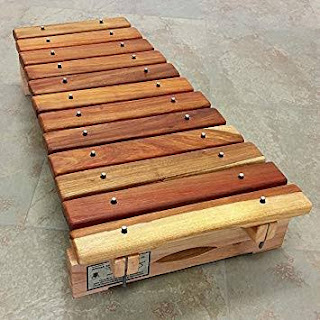Abanyala ba Kakamega: Language- How to greet in Olunyala (K).
By Balovera Edwin Ongacho
Abanyala ba Kakamega have greetings that are done both nonverbally and/or verbally as dictated by the Abanyala cultural norms.
Cultural aspects guiding greetings.
Abanyala accepted two types on nonverbal communication to be used together with verbal greetings: handshake and waving. The following are observed as greeting norms:
- Failure to air out greetings was considered a sign of indiscipline among children. Among the elderly it announced lack of peace.
- When the person being greeted was near, then the greeting had to be accampanied, if culturally allowed, by a handshake. There were different types of handshake intensities basing on the level of relations.
- The following people were never greeted by handshake due to various reasons:
- A son-in-law never did a handshake with the mother-in-law and aunt-in-laws.
- A daughter-in-law never did a handshake with father-in-law and uncles-in-law.
- If the person being greeted was at a distance or involved in chores, then it was to be acampanied by waving a raised open palm or palms. Daughters-in-law and son-in-laws gently waved using open palms.
Words used to express greetings in Olunyala (K)
1. Action based greeting
A common type of greeting involving mention the action being doing by the person being greeted. Apart from Abanyala having stayed in a place called Burebe during their migration, it is this type of greeting that popularized Abanyala to be referred to as Abanyala Abarebe. They greeted by asking what they saw you doing. Examples of actions that can be used as greetings are many: wiyoka, okesa, wikhaye, olima, olambuula, waaya, okhebera, olia, obecha, waka, onywa, owikha, omaala etc
Mikairi: Vakoki mwikhaye?
Vakoki: Yee bakoki.
2.
6. Aka makherebende-
7. Aka mumaweroweri
8. Aka musi
9. e musijiambo-4
10. Aka engoloobe-
11.13. Aka (amakhuwa) engolobe
This is evening greetings. It is translatable as 'Good evening'. It is answered by saying 'Khaba tawe" to mean you have no news.
Sifuna: Aka engolobe Masika.
Masika: Khaba tawe Sifuna.
14. Aka esiro-'some time before 9pm.
Aka (amakhuwa) esiteche
This is greetings for day time. It is translatable as 'How is the day?' It is answered by saying 'Malayi' for 'the day is well.'
Sisa: Okana, ak'esiteche?
Okana: Malayi, Sisa.
5. Aka (amakhuwa) esisenya
This is greetings for mid morning time. It is translatable as 'How is the mid morning?' It is answered by saying 'Malayi' for 'the day is well.'
Sisaka: Okalo, ak'esisenya?
Okalo: Malayi, Sisaka.
6. Aka (amakhuwa) m'musi ) or aka esijiambo
This is noon greetings. It is translatable as 'Good afternoon.' It is answered as 'malayi' for 'it is well'.
Namukuchu: Nawambisa, aka m'musi?
Nawambisa: Malayi Namukuchu.
7. Aka owirire- good evening done between 8 pm and 9pm
Ekhuwona
This a far done greeting that means 'I see you.' It is answered by saying 'Ekhuwona wesi.'
Luvanga: Wechuli, ekhuwona?
Wechuli: Ekhuwona wesi.
8. Mulembe
It is a greeting translatable as 'peace be with you'. It is answered "Mulembe muno" or "Mulembe wesi."
Sirindwa: Mulembe kuka.
Erima: Mulembe wesi omuichukhulu.
9. Ochie
It is a greeting translatable as "How are you?" It is answered by saying "Endi omulamu" meaning "I am fine as you can see." At times, the one being greeted just use ellipsis by saying 'enchi' to mean 'i am like this- the way you see me.'
Juma: Mukhwasi, ochie?
Toola: Mukhwasi, enchi wusa.
10. Oliho
This is greetings by a passerby. It is translatable as 'Are you there?' It is answered by saying 'Endiho' to mean 'I am there.'
Uchunju: Neria, oliho?
Neria: Endiho Uchunju.
11. Oli omulamu
A greeting that means to ask, 'Are you fine?" It is answered by saying "Endi omulamu" for "I am fine"
Masinde: Nandako, oli omulamu?
Nandako: Endi omulamu, Masinde.
12. Omwami
This is a greeting that can be translatable as 'Sir'for a leader
Sakini: Omwani?
Natecho: Ndiho..
13 Oyeera
This is a greeting that can be translatable as 'Are you still breathing well?' It ia answered by saying, 'Embeera' or 'yee' to affirm that you are breathing.
Sakini: Omuichukhilu, oyeera?
Natecho: Kukhu, embeera.
14. Wakhera
This is night greetings. It is translatable as 'How is the night.' It is answered by repeating the same.
Wakhungu: Matuku wakhera?
Matuku: Wakhera Wakhungu.
15. Wakiteka
This is for greeting a person who is performing chores. It is answered by affirming 'Wakiteka wesi' as a compliment to the chore the other person is involved in.
Namanda: Okwamo, wekiteeka.
Okwamo: Wakiteeka wesi.
16. Wekumia
This is for greeting a person who is performing chores. It is answered by affirming 'Ochio wesi' as a compliment to the chore the other person is involved in.
Makwali: Wanimo, wekumia.
Wanimo: Ochio wesi.
17. Wetinya/ tinyirira
This is for greeting a person who is performing chores. It is answered by affirming 'Ochio wesi' as a compliment to the chore the other person is involved in.
Maka: Wanimo, wetinya.
Wanimo: Ochio wesi.
18. Wolakho (amakhuwa)/Lomakho (amakhuwa)
It is a greeting that means 'say something". It is answered by saying 'khaba tawe' or 'khabata" for 'I have nothing bad to say.'
Nato: Wolakho amakhuwa senge.
Nanjoe: Khaba tawe omusengechana
19. Wusieye or wanukhire
This is a form of greeting done in the morning. It is translatable as "Good morning?". Its answer remains 'wusieye.'
Kobulo: Ndombi, wusieye.
Ndombi: Wusieye wesi.
20. Okhupa khusi?
This is a form of greetings that can be translated to "how are you fairing on?" It is common as an after greeting question to ask for the health status of the other family member.
21Wusieye or aka owusieye for goodmorning
Abanyala did not have words for greeting between 9pm and the time just before daylight. It was not time for normal visit. Here the one you have visited exclaime ochie (how are you)




Thank you. Do you have a page with common phrases for tourists?
ReplyDelete